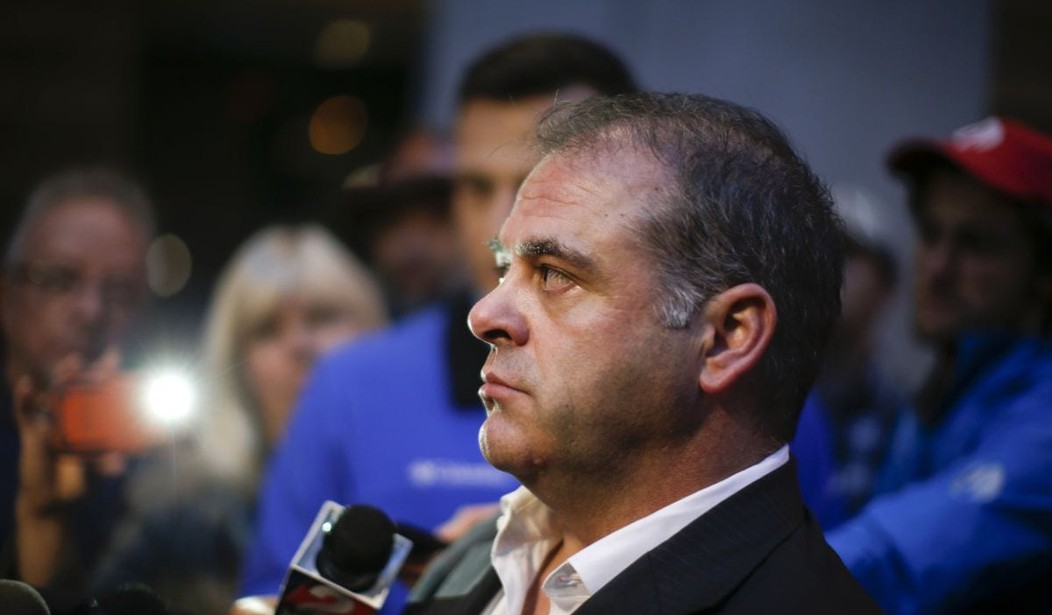A trial that was about the overweening power of government acting oppressively against citizens ended with the government making a case for the defense.
The shocking acquittal of brothers Ammon and Ryan Bundy and five others on conspiracy charges related to the takeover of the Malheur National Wildlife Refuge apparently frustrated U.S. marshals who took out their anger on Marcus Mumford, the lawyer for Ammon Bundy.
Immediately after the trial, Mumford made an impassioned plea for the release of Ammon Bundy, who is facing charges in Nevada related to his father’s refusal to pay grazing fees, but who has no charges pending against him in Oregon.
This is Mumford’s side of the story.
U.S. District Judge Anna J. Brown told him that there was a U.S. Marshal’s hold on him from a pending federal indictment in Nevada.
“No, he’s released on these charges. He’s acquitted. Nevada doesn’t have jurisdiction,” Mumford yelled, standing before the judge. “If there’s a detainer, show me.”
“Mr. Mumford, you really need to never yell at me now or never again,” the judge responded.
Brown told Mumford that she’s releasing Bundy on all federal holds in the Oregon case, but he’ll have to take up any questions about the federal holds from the Nevada case with the U.S. Marshals Service.
“If they want him, they know where to find him,” Mumford told the judge. “I don’t see any paper proving their authority to hold him.”
Suddenly, a group of about six to seven U.S. Marshals, who had been either standing or seated around the perimeter of the courtroom, slowly moved in and surrounded Mumford at his defense table. The judge directed them to move back but moments later, the marshals grabbed onto him.
“What are you doing?” Mumford yelled, as he struggled and was taken down to the floor.
As deputy marshals yelled, “Stop resisting,” the judge demanded, “Everybody out of the courtroom now!”
Mumford was taken into custody by the Federal Protective Services.
He was cited for failure to comply with a federal lawful order and disturbance and released with a Jan. 6 date to return to federal court, said Eric Wahlstrom, supervising deputy of the U.S. Marshals Service.
According to Wahlstrom, Mumford was shocked with a stun gun in what’s called a dry-stun mode, meaning no probes were fired into his body but a Taser was placed up against his body.
Wahlstrom, who was not in the courtroom, said the actions were taken because Mumford was resisting and preventing marshals from taking Ammon Bundy out of the courtroom and back into custody.
Wahlstrom said the stun gun was used because deputy U.S. marshals “attempted to handcuff him and he continued to resist.”
But observers who were close to the arrest decried the use of force against a lawyer in court.
“What happened at the end is symbolic of the improper use of force by the federal government,” Mumford’s co-counsel J. Morgan Philpot said.
We don’t know exactly what Mumford did, or how threatening he was. But isn’t it ironic that the marshals charged him with “failure to comply” with a lawful order when they themselves disobeyed the judge who “directed them to move back”?
The former dean of the University of Oregon Law School had this to say about the incident:
“It just blows my mind,” Paris said. “To have a lawyer who’s making an argument in court physically restrained and taken down is extraordinary. He’s entitled to make these arguments. If he was repeating himself over and over, the more typical response is to hold him in contempt. But to physically accost him is just shocking.”
Note that the judge did not order the marshals to take Bundy into custody. They apparently acted on their own accord. In other words, the marshals acted in a harshly subjective manner—vigilante style.
Conspiracy cases are hard to make unless you have recordings of some kind catching the perpetrators in the act of plotting. The prosecutor did not have this kind of evidence and the jury acted accordingly.










Join the conversation as a VIP Member